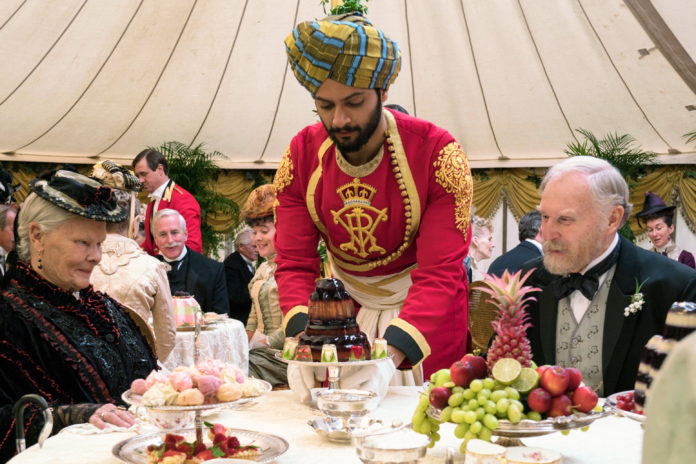From a purely cinematic perspective Victoria and Abdul, which is based on the true story of the relationship between Queen Victoria and her Indian manservant, is a good film, says Roshan Muhammad Salih. But that’s what makes it dangerous. Because it reduces the tragic and significant tale of Britain’s colonial exploitation of India to a heartwarming and completely unimportant platonic love story.
If the world of Western cinema had any moral rectitude (yeah, right) a film about the Victorian era and India should be about how Britain raped, pillaged and impoverished that country for its own benefit.
It should be about how Britain’s racist exploitation of India directly led to famines which killed millions.
Yet instead of that what we get is a quaint little tale about the “Empress of India” and her faithful brown Muslim servant who only exists to “serve her.”
Faithful servant
Victoria and Abdul is essentially about a bored and elderly Queen Victoria (played by Judi Dench) who is spending the latter years of her privileged existence stuffing her face and getting fat.
Then one day two Indian servants arrive at the Royal Court. One of them, Abdul Kareem (Ali Fazal), is tall and handsome and is keen to curry favour with the Queen, and does so by kissing her feet and regaling her with (sometimes tall) stories of his homeland.
Subscribe to our newsletter and stay updated on the latest news and updates from around the Muslim world!
Abdul Kareem quickly wins the monarch’s favour and becomes her personal companion, much to the chagrin of the white racists who are used to running her affairs.
I guess Abdul Kareem is ultimately what many Muslims would nowadays call a “coconut,” while others would probably describe him as a traitor to his own people. He’s obviously in awe of all things British and is above no level of obsequiousness.
Maybe a kinder interpretation would be that, as a man of low birth, he was just trying to climb the greasy poll to better his situation and that of his family in the best way he could.
The other Indian servant, Muhammad (Adeel Akhtar), hates the British empire and can’t wait to go back home. He considers the British to be barbarians who raped his country and can’t abide the cold, miserable weather in “civilisation.” In one scene (which I doubt really happened) he even tells the Prince of Wales to stick the British Empire up his arse.
I just wish we had seen more of this guy.
Most of the British characters in the film are portrayed as obnoxious, ignorant racists, apart from Queen Victoria herself who comes across as much more open-minded, showing a genuine interest in learning Urdu and about Islam. While her racist courtiers are disgusted by Abdul Kareem’s burqa-clad wife, she befriends her. While they repeatedly try to get him sacked, she just digs her heels in.
That said, there’s no escaping the queasy feeling you get observing a woman in her 80s fawning over a man in his 20 a bit like so many old British grannies do on their holidays in Morocco or The Gambia.
Even as she lies on her death bed she insists on seeing Abdul Kareem alone. Although as soon as she dies the new King evicts him and sends him packing back to where he came from.
Colonial context
Victoria and Abdul is a good-looking production that is well-acted and sometimes quite funny in an understated sort of way. And if you divorce it from its context then I’m sure you’ll enjoy it if period dramas tickle your fancy.
But cinema can never be divorced from the political context in which it exists. That’s why loads of films in the West get made about the Holocaust but none get made about the suffering of the Palestinians.
The perfidious Brits have always been expert in rebranding their own crimes as ultimately benign. Or if there is some mild criticism to be made it’s always at the safe distance of a couple of hundred years when it makes no difference whatsoever.
Ultimately Abdul Kareem – who is seen kissing the feet of a statue erected to Victoria in India at the end of the film – was a victim of the British empire even though he did his best to advance his own interests within it. His mind was colonised until his dying day.
But let’s leave aside the unimportant love story and focus on the facts: Britain invaded and occupied India, and it raped and pillaged the country’s human and material resources. And Queen Victoria was the head of that racist, Islamophobic, imperialistic enterprise. So no matter how nice she was to her brown Muslim manservant let’s not gloss over all that.
@RMSalih


















